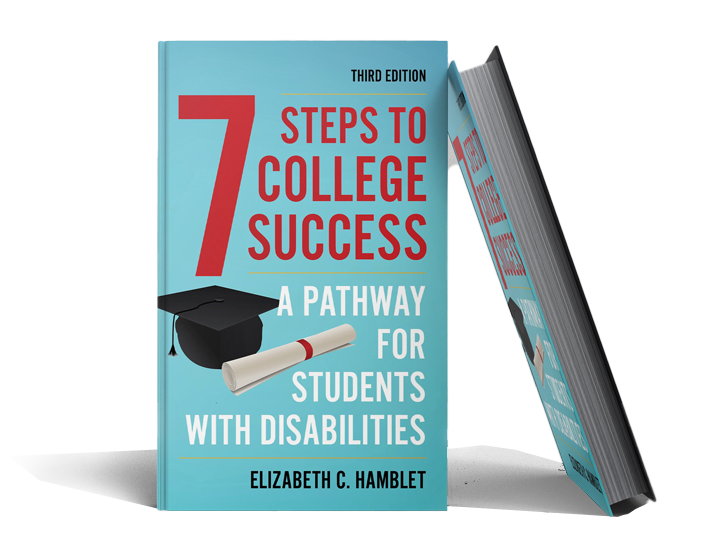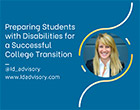Introduction
It is understandable that there is so much confusion about whether colleges have to follow the plans that students have had in high school. If you look in the text of the Individuals with Disabilities Education Act (IDEA), which is the one that provides for IEPs, or at Section 504 of the Rehabilitation Act of 1973 (Section 504), you won’t find any wording that explicitly says that students’ plans “expire” or come to an end when students graduate from high school (or age out of the system). But this is effectively what happens.
An Expert Explains
In his 2005 article, “Navigating the College Transition Maze: A Guide for Students with Learning Disabilities,”* Dr. Joseph Madaus, one of the biggest experts in the transition field, explained:
Although colleges and universities are obligated by the mandates of Section 504, they are bound to Subpart E of the law, whereas Subpart D covers secondary schools. These subparts place significantly different requirements on secondary schools and postsecondary institutions. Thus, as with an IEP, the services outlined in a secondary-level Section 504 plan end at graduation from high school. Although colleges may use these plans in decision making, they are not obligated to follow the requirements of these plans.
While Dr. Madaus’s article is dated, it reflects the current laws.
What the Shift Means for Accommodations
None of this should cause panic in families or high school professionals; it doesn’t mean that colleges don’t offer accommodations to eligible students. It just means that they don’t have any obligation to provide the same services and accommodations that students may have received before. In many cases, they will provide the same accommodations, assuming that the accommodations students are using in high schools are of the types that are typically available at the college level, such as extended time for exams and permission to use a laptop for notetaking. But there are other accommodations colleges don’t have to provide, such as tutoring by a learning disabilities specialist.
No Guarantee of Eligibility Based Solely on History
Another important point is that students are not guaranteed services at college simply because they had a 504 plan or IEP in high school; they have to be found eligible for services in order to receive accommodations. For most students, this will not be a problem, as their college will likely find them eligible. In the same article, Dr. Madaus provides insight into who might be affected:
A newer, but increasingly common, problem at the postsecondary level relates to two groups of students in transition. One group consists of students who were not diagnosed with LD but who exhibited difficulty at the secondary level in a specific area, such as test taking. The second group consists of students who no longer meet the diagnostic criteria for a learning disability but who are provided with a monitoring plan. Instead of using special education services, secondary teams may create Section 504 plans for these students. Sympathetic teachers may give the student informal accommodations, such as extended time to complete a test or a quiz. Students may become reliant on these accommodations and may expect these services to continue at the college level. Without documentation that verifies the existence of a learning disability and a subsequent substantial limitation to learning, postsecondary institutions may deny the student’s accommodation request.
Students who might be affected include those who were accommodated solely on the basis of test anxiety, or those whose testing shows that – while there’s a statistically significant difference between some of the scores on their testing – all scores fall at least in the average range or above. (Be aware that the definition of disability in Section 504 says includes an “… impairment which substantially limits one or more major life activities.” It is similar in the Americans with Disabilities Act, or ADA.)
What Does This Mean for Students Moving on to College?
This post is intended to alert everyone to the fact that they need to know what students can and can’t expect at college. Students, parents, and professionals should educate themselves about the laws in place, about documentation students may or may not need to request accommodations, and what accommodations they might expect to receive at college, or not.
The U. S. Department of Education’s site offers these resources:
Dear Parent Letter (on their student’s transition to college)
Transition of Students With Disabilities To Postsecondary Education: A Guide for High School Educators
Auxiliary Aids and Services for Postsecondary Students with Disabilities
[Though these posts from OCR have older dates, they are considered current until/unless OCR updates them.]
*Source – Madaus, J.W. (2005). Navigating the college transition maze: A guide for students with learning disabilities. Teaching Exceptional Children, 37(3), 32-37.



